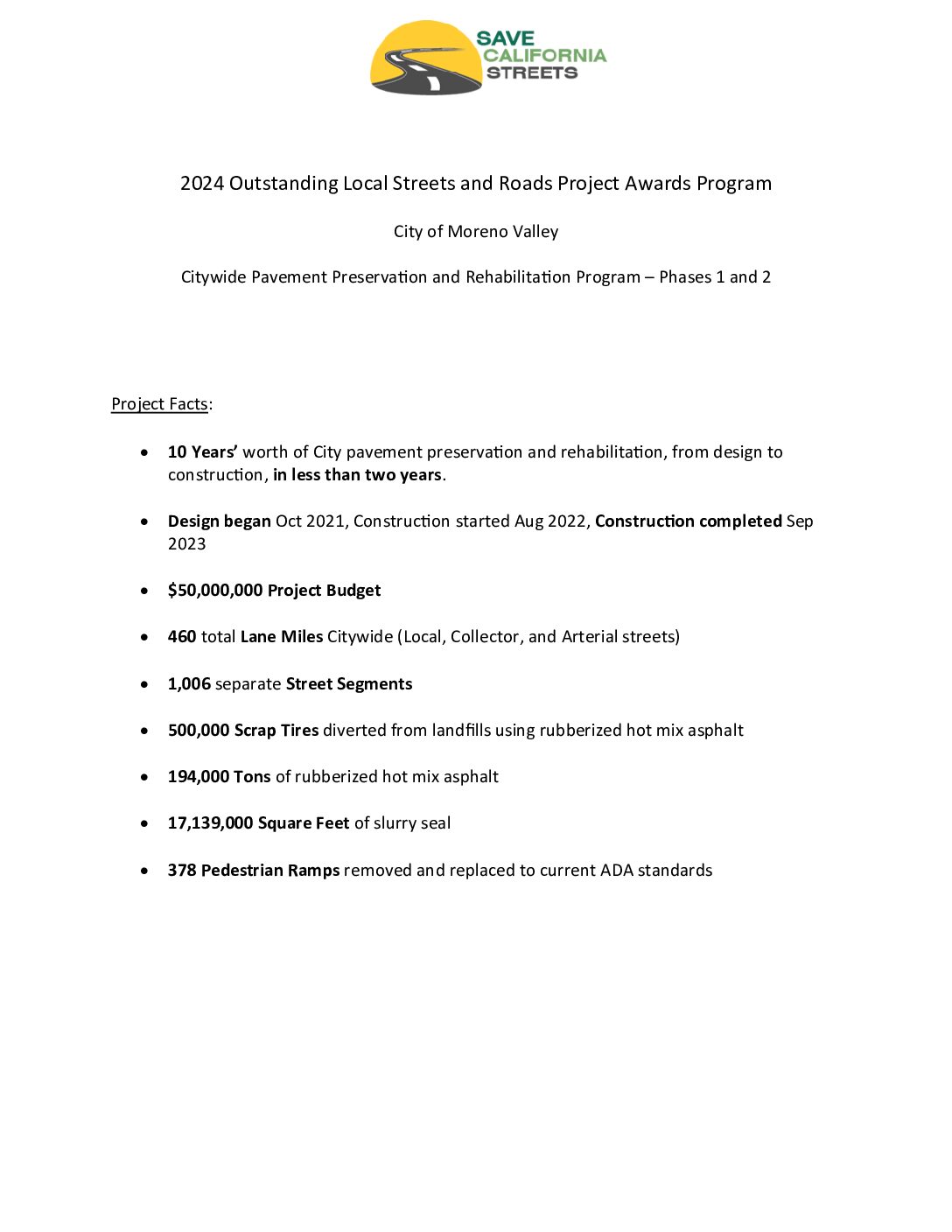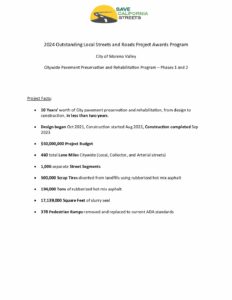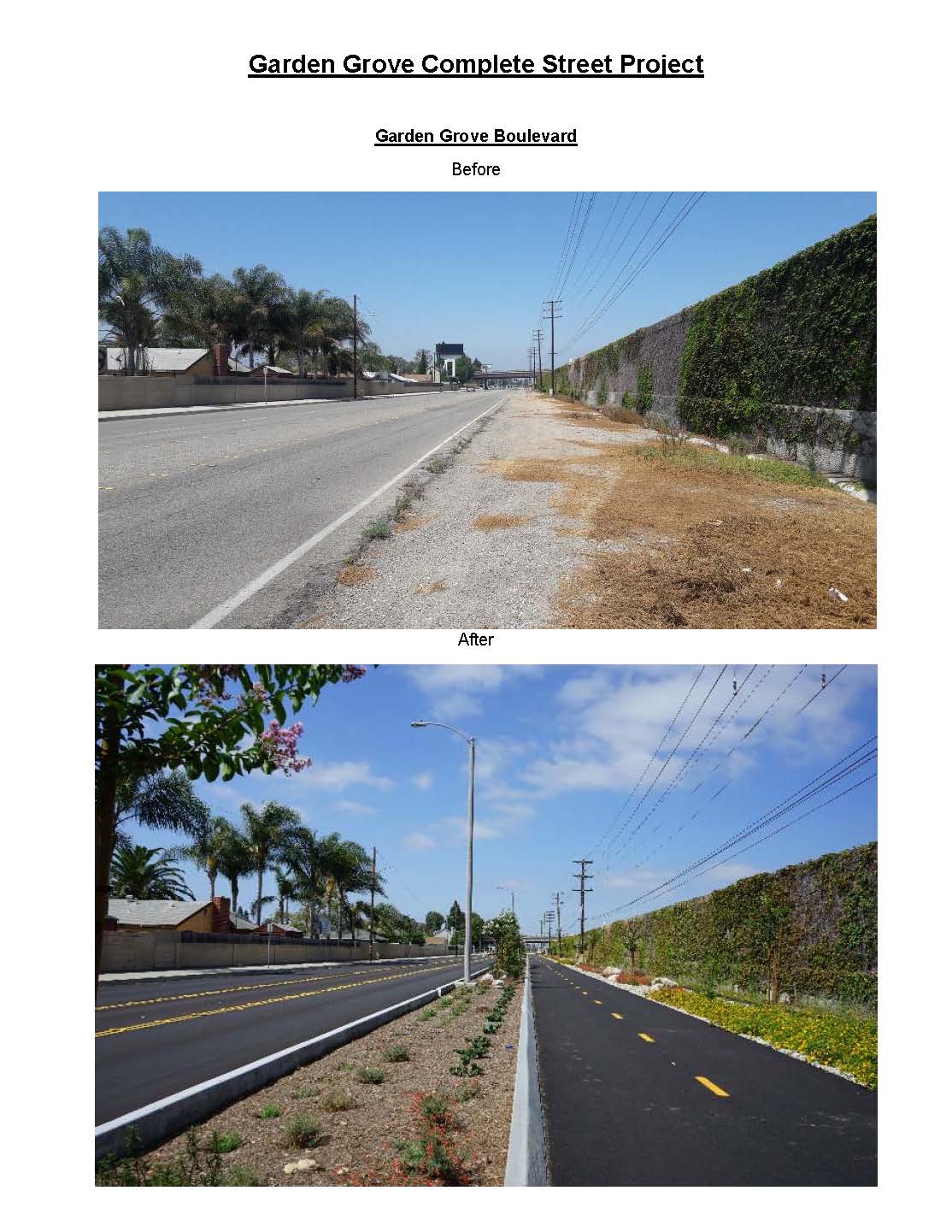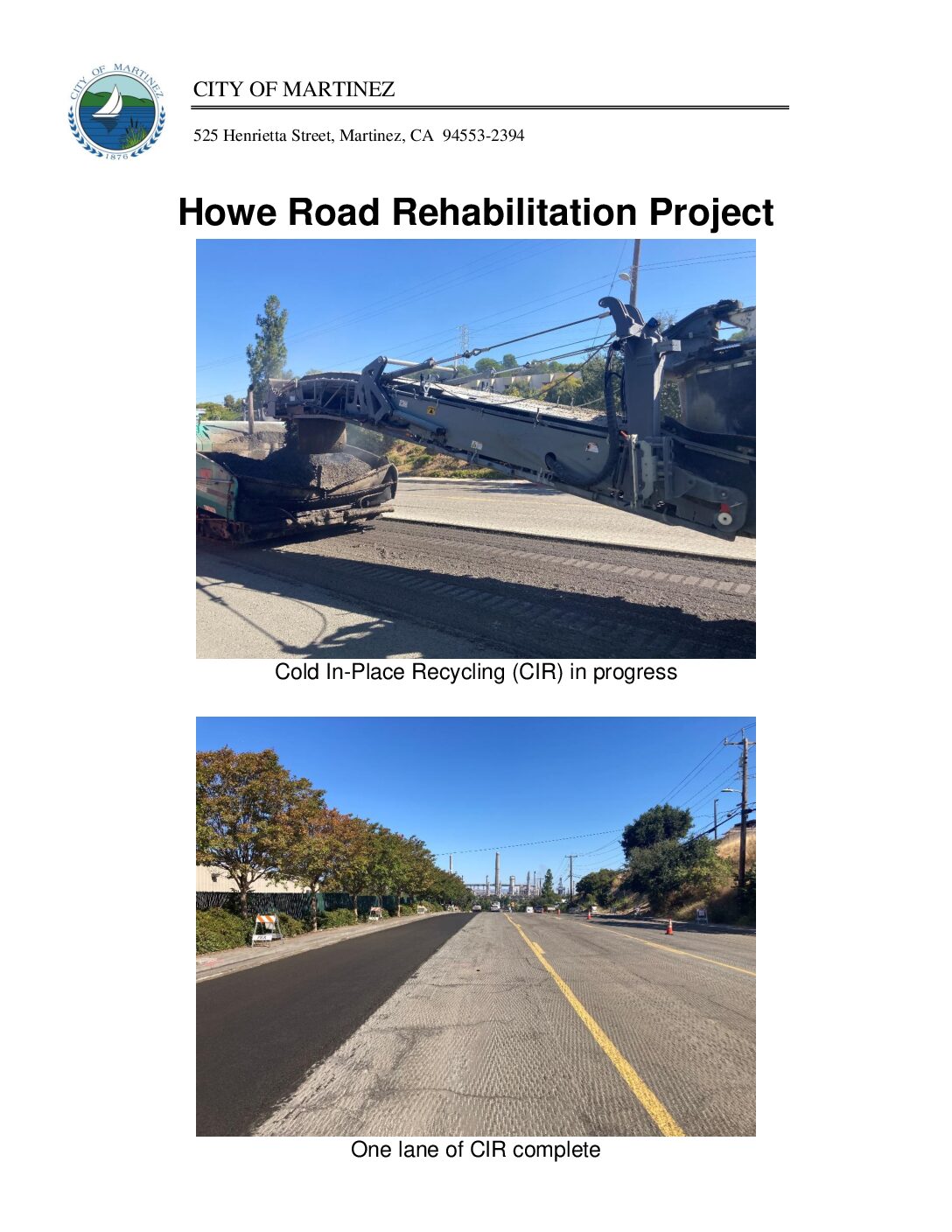Citywide Pavement Rehabilitation Program – Phases 1 and 2
Location
City of Moreno Valley – Citywide
City or County Responsible for Project
City of Moreno Valley
Category
Roads: Efficient and Sustainable Road Maintenance, Construction and Reconstruction Projects.
Description
The City of Moreno Valley’s Citywide Pavement Rehabilitation Program – Phases 1 and 2 project, significantly improved road quality, safety, and access. This $50 million project was planned to be completed in a 10-year period but was completed in just 18 months, funded by the federal recovery act plans and the state gas tax under State Bill 1.
The project addressed road conditions across 460 lane miles, using various rehabilitation and preservation strategies to mitigate accident risks including crack sealing, slurry sealing, localized repair through digging out and replacement, edge grinding and overlay, full grinding and overlay, and recyclable pavement fabric for soft subgrade areas. The project covered 1,006 street segments, identified through the Pavement Management System (PMS), which prioritizes segments based on the Pavement Condition Index (PCI), traffic volume data, pothole repair records, proximity to schools, and resident requests. These elements contribute to a 10-year plan updated annually.
Innovative technology, such as video image detector cameras, was installed for traffic synchronization and bicycle detection, avoiding traffic disruption and pavement disturbance. This technology eliminated the need to cut the pavement to install inductive loops in future pavement rehabilitation. Safety enhancements included upgrading 378 curb ramps to Americans with Disabilities Act (ADA) standards, adding 10 crosswalk flashing beacons, and installing over 100 miles of bike lanes citywide per the City’s Adopted Bicycle Master Plan.
Innovative strategies like project bundling and single contract awards were used to cut costs, streamline processes, and meet the 18-month project delivery goal. The project was a collaborative effort, designed and overseen by City staff, with assistance from consultants HR Green for design, CAV Consulting for project management, and TKE Engineering, Inc., and Z&K Consultants Inc. for construction management. Multiple contractors were hired due to the demanding schedule, including All American Asphalt, Hardy & Harper, and RJ Noble.
Environmentally friendly materials and methods were used to promote sustainability, reduce overhead costs, and reduce the carbon footprint. For instance, Asphalt Rubberized Hot Mix (ARHM), which incorporates crumb rubber from recycled tires, was used in all overlay applications. This project diverted approximately 500,000 scrap tires from landfills to construct 194,000 tons of ARHM. The project used 20% Reclaimed Asphalt Pavement (RAP) Micro-surfacing on several industrial area streets with high traffic loading. A total of 17,139,000 square feet of slurry seal was used to extend pavement life without having to grind and dispose of existing pavement.
The project resulted in refreshed striping, improved road quality, enhanced bicycle lanes, and improved accessibility, resulting in better access to schools, businesses, and bus stops. The citywide PCI is expected to increase from 72 to 76.
Project submitted by
Name
Josh Frohman
Job Title
Senior Engineer
Organization
City of Moreno Valley
Address
14177 Frederick St, Moreno Valley CA 92552
joshf@moval.org
Phone
951-413-3251




